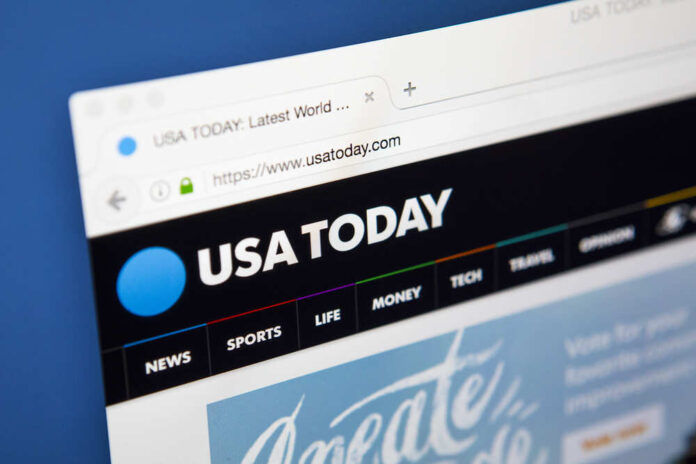
USA Today’s coverage of the Voter Participation Center raises questions about media transparency and potential bias in electoral reporting.
At a Glance
- USA Today’s portrayal of the Voter Participation Center (VPC) as nonpartisan is under scrutiny
- The VPC is accused of using partisan ad filters on social media platforms
- Over 70% of Americans believe there is significant media bias in news coverage
- Studies show media bias can influence voting behavior
- Transparency in media coverage is crucial for maintaining trust in the electoral process
USA Today’s Coverage of the Voter Participation Center
Recent scrutiny of USA Today’s reporting on the Voter Participation Center (VPC) has brought media transparency and potential bias into the spotlight. The publication’s portrayal of the VPC as a nonpartisan organization has been called into question, with critics arguing that the center’s alleged partisan leanings were not adequately addressed in the coverage.
The VPC has been accused of using partisan ad filters on Facebook and Instagram to exclude Republican-associated interests, raising concerns about its claimed nonpartisan status. Historical evidence suggesting the VPC’s actions have favored the Democratic Party was reportedly omitted from USA Today’s article, further fueling the debate about media bias in electoral reporting.
The Impact of Media Bias on Voting Behavior
Research has shown that media bias can significantly influence voting behavior. A study by the National Bureau of Economic Research found that the introduction of Fox News had a measurable effect on the vote share in Presidential elections between 1996 and 2000.
The study revealed that Republicans gained an estimated 0.4 to 0.7 percentage points in towns where Fox News was broadcast. This influence extended beyond specific candidates, indicating a broader ideological shift. Such findings underscore the potential impact of media coverage on electoral outcomes and the importance of balanced reporting.
Public Perception of Media Bias
The issue of media bias is not lost on the American public. Over 70% of Americans believe there is a significant amount of bias in news coverage. This widespread perception highlights the need for media outlets to strive for transparency and impartiality in their reporting, especially when covering election-related topics.
As the public becomes increasingly aware of potential biases in media coverage, there is a growing demand for fact-checking and critical analysis of claims made by organizations involved in elections. This heightened scrutiny applies not only to the organizations being reported on but also to the media outlets themselves.
The Importance of Transparency in Electoral Reporting
Transparency in media coverage is essential for building and maintaining trust in the electoral process. When news outlets fail to disclose relevant information about organizations they are covering, it can lead to a distorted public understanding of important issues.
In the case of USA Today’s coverage of the Voter Participation Center, the omission of information about the organization’s alleged partisan leanings raises questions about the completeness and impartiality of the reporting. Such omissions can potentially impact voters’ perceptions and decision-making processes.
Conclusion
The controversy surrounding USA Today’s coverage of the Voter Participation Center serves as a reminder of the critical role media plays in shaping public opinion and influencing electoral outcomes. As voters navigate an increasingly complex information landscape, it is crucial for media outlets to prioritize transparency, provide comprehensive coverage, and avoid overlooking potential biases in their reporting.
Ultimately, ensuring fair and balanced media coverage is essential for maintaining the integrity of the democratic process and fostering informed citizen participation in elections.














